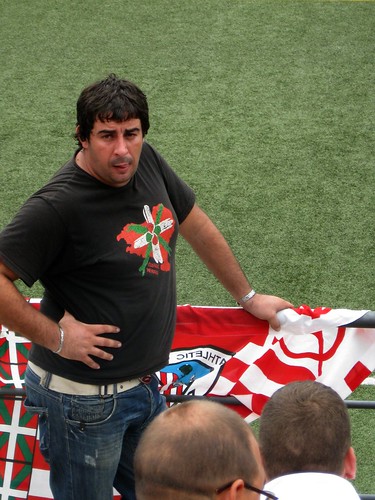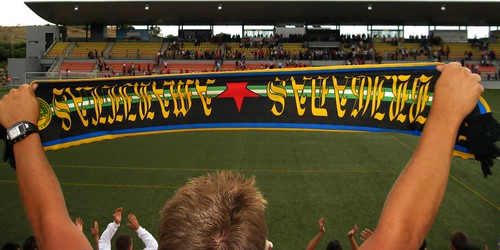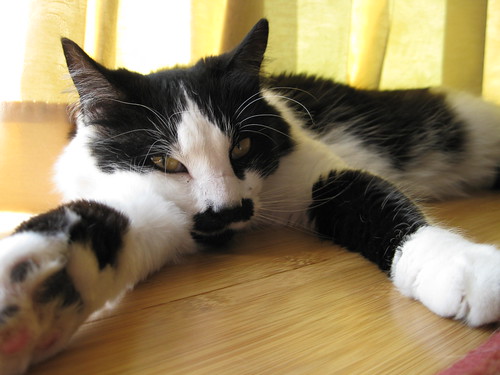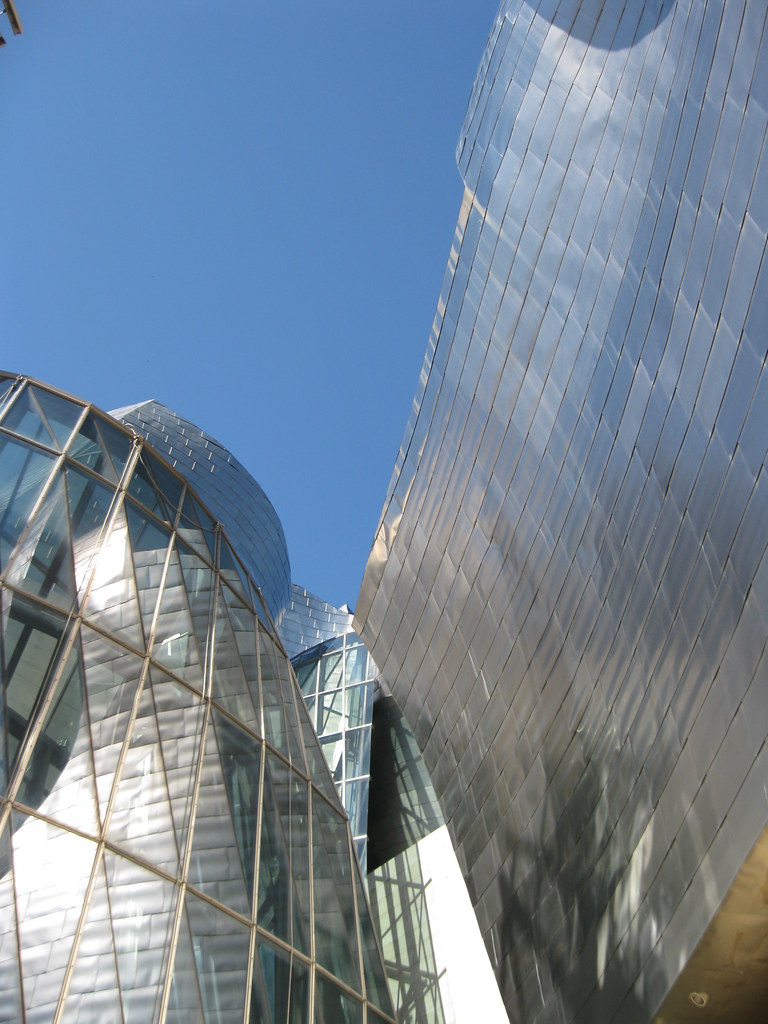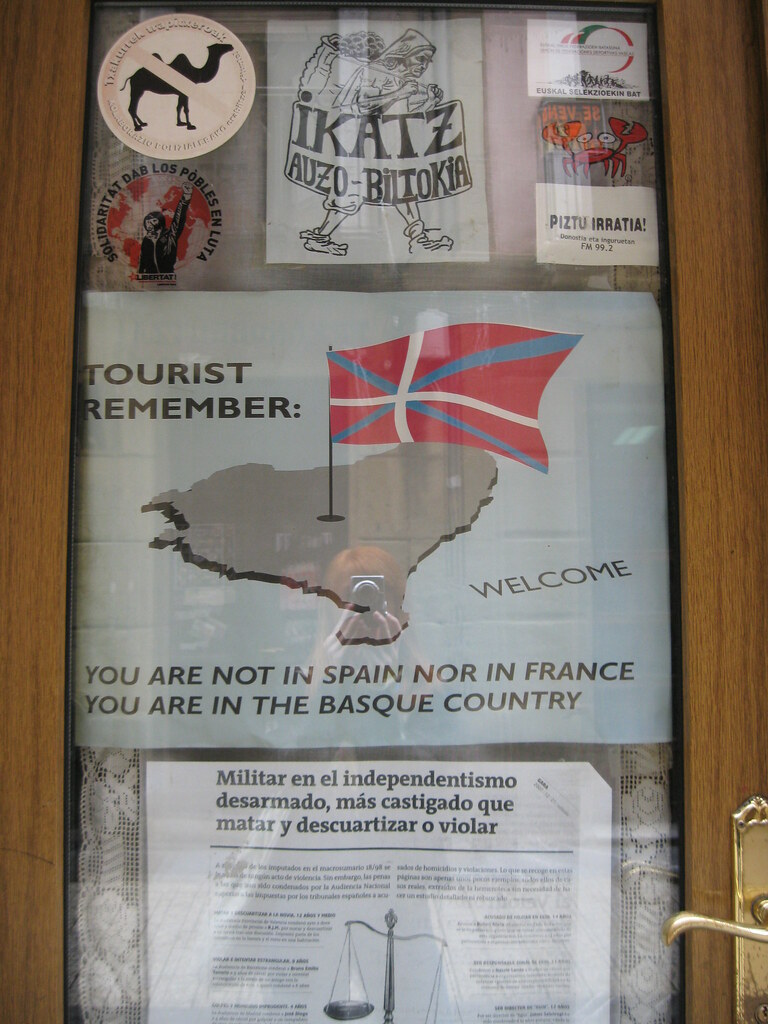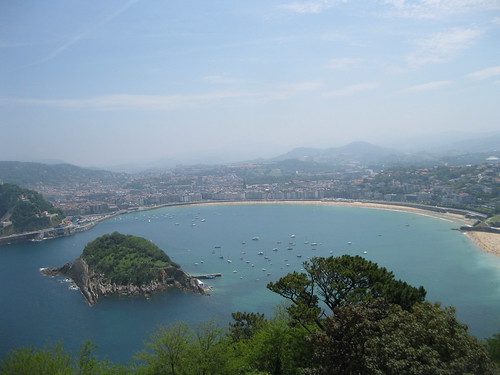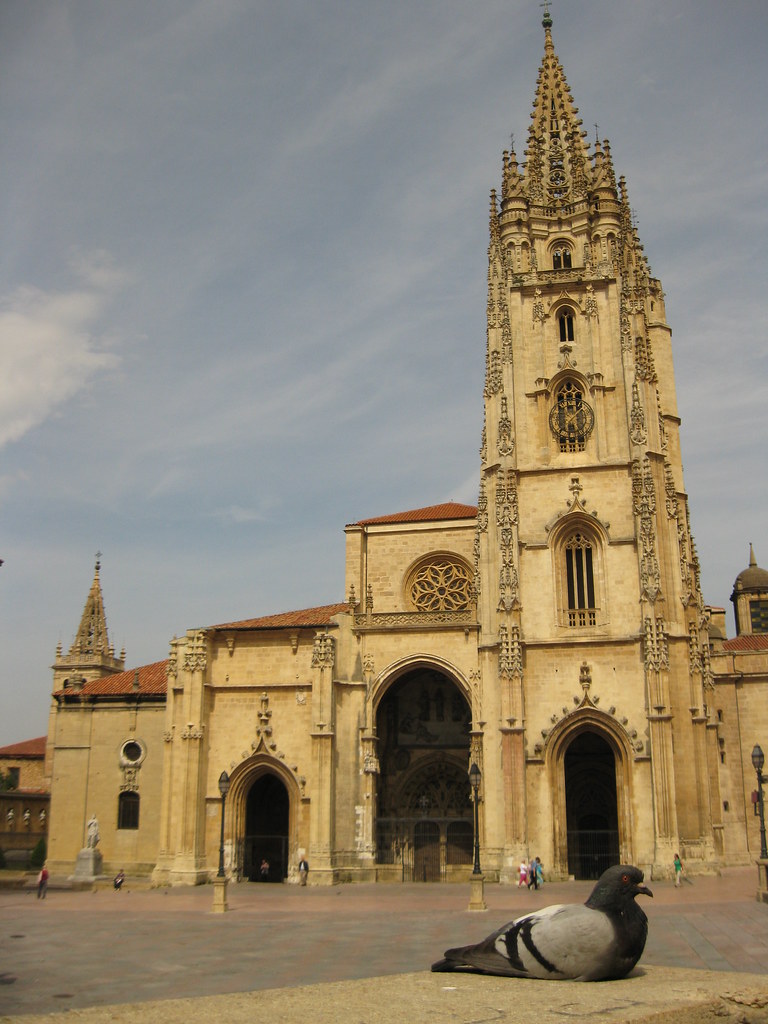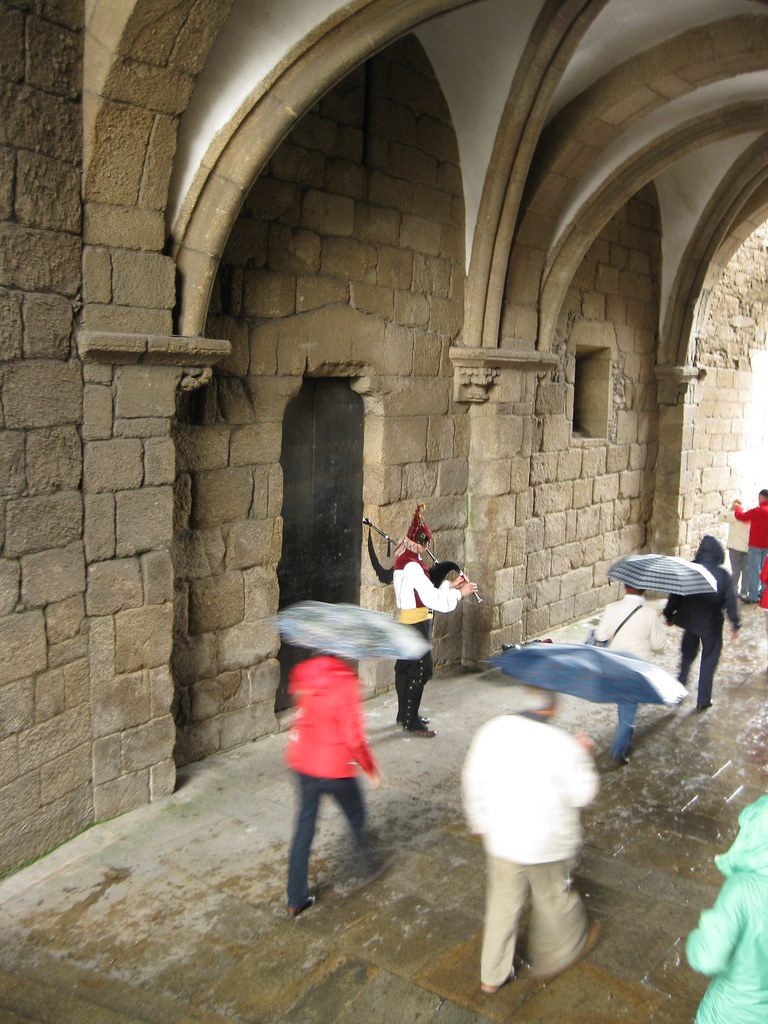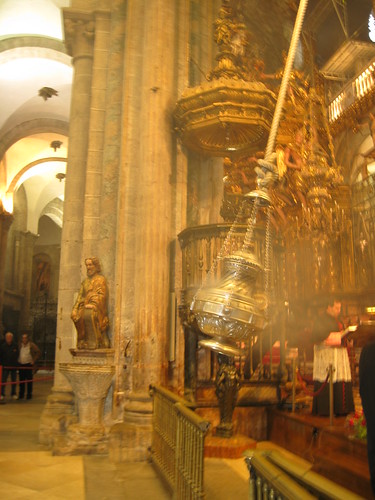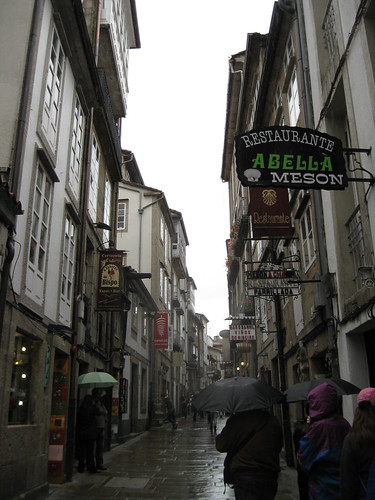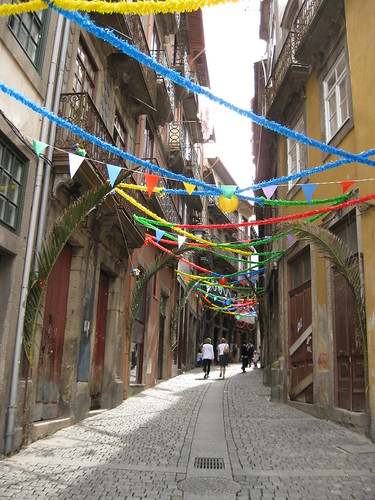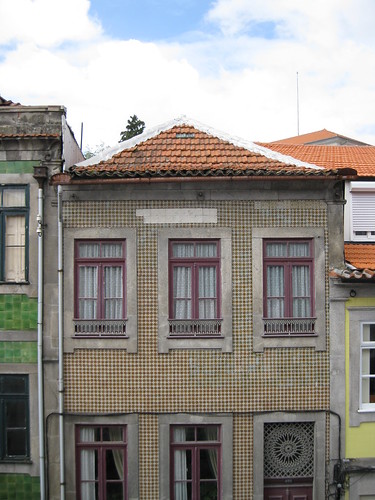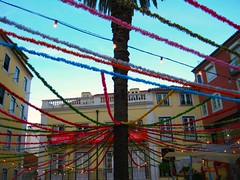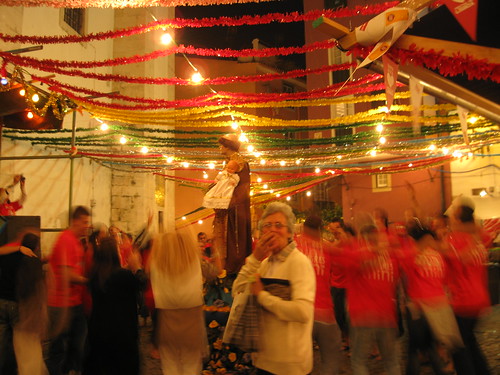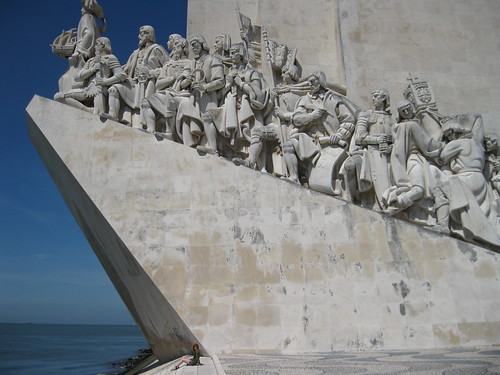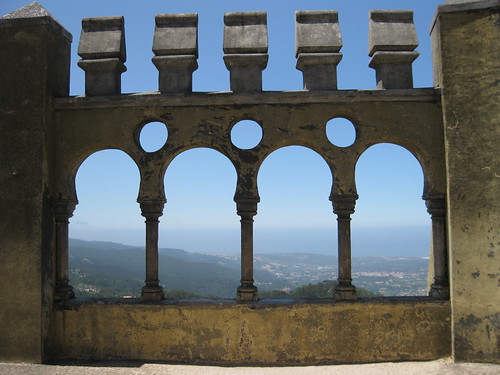I'm skeptical about the relaxation these pools of water are purported to provide. Sitting in pools of different temperatures for a little while? Sure, that sounds vaguely interesting... but I'm here nonetheless. I feel a need to do everything in Spain immediately, because I might never be able to do it again. So Alexia and I have trekked to Jerez de la Frontera to visit the Arab Baths and 'experience the culture' of another Andalucian city. My thoughts are racing, and the giggling of the young couple in the corner doesn't help me concentrate on thinking more slowly. I consider glancing pointedly at them, but decide against it because a) that seems to contradict the purpose of a relaxing spa and b) that kind of glance has never worked before in Spain, it likely will not work now either. They move on to the next pool. I am not relaxed. Have ten minutes passed? Is it time for me to move on to the next pool, too? I check to make sure Alexia is still in the warm pool with me. She looks perfectly serene. Ok, I will try harder to relax. Alexia migrates to the next pool. I follow dutifully.
I try to imitate the people floating in this pool; they also look rather serene. It's hard to breathe. I'm not very good at floating, not to mention swimming. Luckily the pools are only three feet deep. Finally, it's time for the cold pool.
I walk to the stairs entering the pool. This pool is much smaller than the others. I wonder why. I dip a toe into the water. It is frigid. I watch Alexia. She's standing to the side of the pool, mentally preparing herself to enter the water. Suddenly, she jumps over the side and into the water! She emits a series of gasps, visibly in pain. It's now or never, I think. I can only make it in up to my waist before my body starts to tremble and I immediately exit. I only succeeded at spending about ten seconds in the cold water, Alexia at least three times as much. I vow to do better during the next rotation.
The warm pool is pleasant after the feeling of frozen needles attacking my lower body in the cold pool. I position myself near a candle inside a carved wooden holder. The movements of the candle are entrancing. Finally, I am relaxed. My thoughts wander to the 'sangre encebollada' we tried last night. It appeared on three menus before Alexia had the guts to order it. Roughly translated as 'blood with onion', it wasn't nearly as red as I had imagined. Dark brown and cut into cubes, the sangre encebollada had a texture I have never before experienced: crumbly wax. I ate a piece the size of a nickel, that was enough. It smelled like meat, it just didn't taste like it. The Sherry wine from Jerez, however, was amazing! Jerez is known for it's Sherry, and rightly so. I'm not a Sherry connoisseur, but I particularly liked a thick, dark variety that was sweet and smelled strongly of raisins -- called Jerez Dulce, or Sweet Sherry.
After exploring the city, wandering through plazas and past churches, we end up consuming four meals: lunch, 'merienda' (afternoon snack), evening tapas, and dinner.
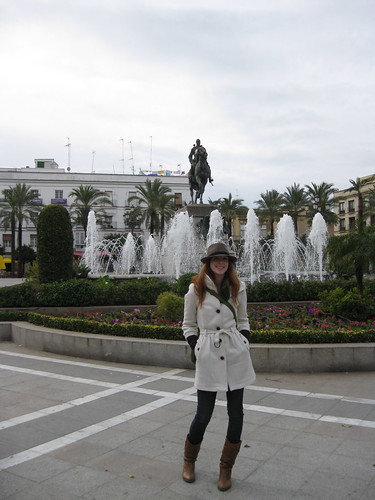
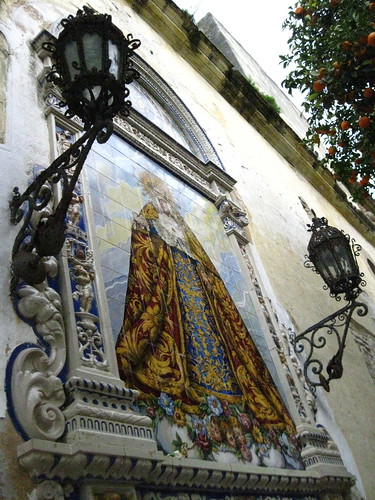
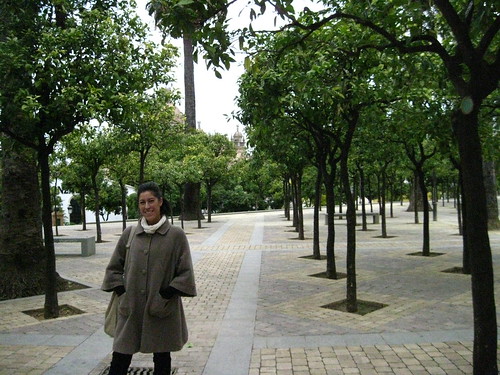
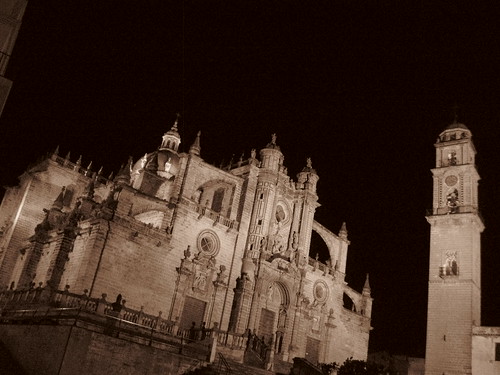
Now it's time for a bar. Our chosen spot, the Buda Bar with a British East India Company theme, has a discotheque hidden upstairs. We enter, and the DJ is playing one of the standard Top 40 hits. It's a normal Spanish discotheque scene: guys with shiny hair and shoes, girls with skirts, high heels, and eyeliner. Suddenly, the music changes. Instead of your average club hit like Lady Gaga, it's a pop style Flamenco song. The crowd cheers. Girls start tapping their heels and clapping. Everyone knows the words. The DJ plays a 'nuevo Flamenco' song again. And again. Groups of girls are doing 'Sevillanas' dance steps, a type of Flamenco step that the average southern Spaniard knows. And then, as quickly as it started, it's over. The DJ moves on to Reggaeton, and then back to Lady Gaga. Spain still surprises me sometimes.
After what feels like hours moving through the pools of water, we are called for our massages. Next, we sip sweet Moroccan mint tea in a room near the pools. I feel as though I'm floating. I don't feel the pressure of my limbs, or the usual tension in my shoulders. Only my tongue is in pain, due to my excitement to drink the very hot sweet tea.
